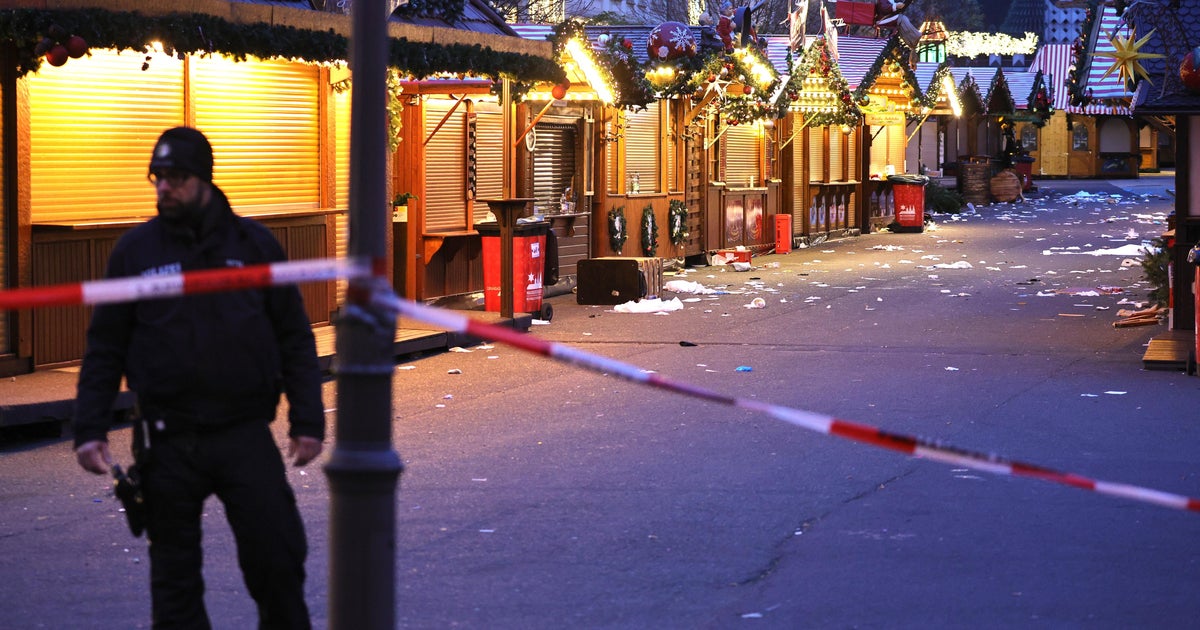Olympics shine light on repression of athletes in Belarus
Moscow — The International Olympic Committee stripped two Belarusian coaches of their accreditation for the Tokyo Games on Friday over allegations that they attempted to force sprinter Krystina Timanovskaya to return to Belarus.
Belarus says it removed Timanovskaya from the country's national team because of her emotional state. But Timanovskaya, who appealed to Tokyo police for help at the airport on Sunday because of concerns for her safety, says she was targeted because she criticized her coaches on social media. She is now in Poland on a humanitarian visa.
The IOC said in a statement that it had revoked the coaches' accreditation as a "provisional measure," and that an investigation was still ongoing.
"I can't come back to Belarus, because for sure now it's so dangerous for me," Timanovskaya said, explaining that she decided to approach the police after her grandmother called and told her it wasn't safe for her to return Belarus. "I love my country, so I wanted to come back to home."
Under pressure
The pressure on Timanovskaya began after she publicly criticized Belarusian sports officials for signing her up for an event she hadn't trained for. She said they hadn't been able to do anti-doping tests for two other members of the team.
"Why should I solve these problems? Even though I have never run 400 meters, I would be ready to help and go with them on the same track. But I believe that higher-ranking people must have respect for us and sometimes reckon with our opinion!" Timanovskaya said in a video posted to Instagram, which has since been taken down.
When news of the video broke, Belarusian officials demanded an apology, and state TV channels began churning out reports claiming Timanovskaya was mentally ill and "a traitor."
"In Belarus, if they show you on TV and call you a traitor, that means you are most likely going to jail," Alexander Opeikin, the executive director of the Belarusian Sports Solidarity Fund, which helped Timanovskaya travel safely from Tokyo to Poland, told CBS News. "This is a well-practiced scheme, and that's when Krystina got really worried."
"Favored by the state and honored by society"
Athletes are often held up as heroes in Belarus, but many have faced losing their careers, being detained, and being forced to flee after speaking out against the country's human rights violations.
"Athletes are favored by the state and honored by society," Heather McGill, Amnesty International's Eastern Europe and Central Asia Researcher, said in a statement. "It is not surprising that athletes who speak out find themselves a target for reprisals."
Last year, when mass protests swept across Belarus following a contested presidential election in which Lukashenko claimed his sixth presidential term, nearly 1,000 athletes signed an open letter urging the authorities to stop cracking down and hold a new vote.
Dozens were subsequently axed from the national team, lost other jobs and were threatened, Opeikin said. Nearly 100 were detained, according to the Sports Solidarity Foundation.
Two-time Olympic basketball champion Yelena Leuchanka, who is a well-known athlete in Belarus, signed the letter. She was then arrested and detained for 15 days, according to Amnesty International.
"On the first night we had mattresses, water and the toilet flushed, but two days later everything kicked off. After breakfast a guard came in and ordered us to roll up our mattresses... Initially we thought that they had removed the mattresses to air them and to get rid of the fleas and bedbugs, but they never gave them back to us," she told Amnesty International.
Lukashenko has always expressed a particular interest in sports and served as the head of the Belarus National Olympic Committee for nearly a quarter-century before handing over the post to his his 45-year-old son, Viktor, earlier this year. They both have been banned from the Tokyo Olympics by the International Olympic Committee, which investigated complaints from athletes that they faced retaliation and intimidation for speaking amid the unrest last year.
As the Belarusian national team departed for the Games, Lukashenko told the athletes: "If you go there like tourists and bring nothing back, you [had] better not return to the country."
"Here, we have the opportunity to breathe"
Two more Belarusian athletes who were traveling abroad in Germany announced that they won't be returning to Belarus this week.
Heptathlete Yana Maksimava and her husband Andrei Krauchanka, who were not taking part in the Tokyo Olympics, made the announcement while on vacation.
"To our great regret, now [in Belarus], you can lose not only freedom, but also lose your life," Maksimava wrote in an Instagram post.
"Here, we have the opportunity to breathe and be one of those fighting for the freedom of our people, friends, relatives and friends. And we will definitely win," she said.
Timanovskaya, who is in Poland, said she has never participated in any demonstrations or spoken out against the government in Belarus.
"I wanted to continue my sport career and to do my best in a sport. Nothing political," she said.
She says she hasn't heard from any of her teammates in Tokyo, but that she assumes they have been instructed not to reach out to her. Other athletes, however, have gotten in touch to offer her support.
"I want people in my country to not be afraid anymore, and to say all things what they don't like, and to respect each other and themselves," she said.



